Deciding to sell your small business can be a complex journey. So, when it’s time to exit the organization that you put time and effort into growing, you want the process to be as smooth as possible. While no two business sales will look the same, any business owner can benefit from these practical steps to help find the right buyer and secure the best deal possible.
If you’re considering an exit, consider the following five tips for selling a small business.
1. Choose the Right Time
Selling a small business is a very personal decision. Many factors play into this choice, whether you’re trying to make more time for your family or looking for a different career. Among the most important considerations is how the sale will impact your financial state. External factors like market conditions can also influence the right time to sell your business. Additionally, although the temptation may be strong to sell quickly, waiting and working on growth in vital business indicators may be advisable. However, if the right buyer is interested, sometimes opportunity is the only indicator you need.
2. Find a Dependable Broker Advisor
When selling a small business, a good business advisor is your ally from valuation to closing. Each stage of the process requires meticulous attention to detail to ensure the sale follows regulations and serves your best interests. A mergers and acquisitions firm can provide expert insight into the sale’s timing, market conditions, government incentive programs, and other factors that could put more cash in your pocket and the right buyer in place to carry on your business.
You can always represent yourself in the sale, but hiring a broker typically means reducing closing time since you’ll have an experienced professional handling the legwork for confidential marketing, buyer qualification, due diligence, funding, and other key steps. (Remember, you will still be running your business in the time leading up to a sale.) When evaluating a broker or M&A advisor, you’ll want to look at their reputation, standing in the industry, and sales track record. Since 1996, Viking has successfully helped entrepreneurs find the right buyers for their businesses so they can be well-prepared to move on to the next venture.
3. Understand the Business’s Value
A valuation analyzes a business for its financial worth. Metrics that inform your business’s value include much more than just assets and liabilities. (Read more about our business valuation process in this blog post.) Although, as the owner, you know your business better than anyone, valuing the business on your own is not advisable. A miscalculation or other error could jeopardize the sale process. Additionally, misrepresenting the value of your business can cost you the sale.
On the other hand, a dependable broker or advisor will advise you of your business’s current state and the likelihood that the company will sell. Your broker will review your company’s financial documents, market forecasts for your sector, and other items to provide an overall picture of your company’s health and profitability. In addition, an experienced broker or M&A advisor will recommend ways to increase your business’s value. Even if you don’t end up selling at the time, the valuation information is vital to you as a business owner, as it provides the total scope of your business’s finances.
4. Market the Business Well
Making the business attractive and connecting you to buyers is another significant advantage of hiring a broker or M&A advisor. For example, Viking knows how to market your business effectively yet confidentially, and we also have an extensive network of vetted prospective buyers. In addition, since over half of Viking’s business advisors are former business owners themselves, they have crucial insight into a buyer’s mindset and how to identify the right one for your business.
A critical element of marketing a business for sale is knowing what not to say, and a reputable broker will protect your confidentiality throughout the selling process. Confidentiality is critical when selling a small business. (Read more about why in this blog post.)
5. Close the Sale
Once you’ve found a qualified buyer and navigated the due diligence period, it’s time to close the sale. However, it’s important to note that the sale entails more than the sticker price. Of course, each sale will differ, but payment terms, assets, legalities, and the post-closing transition agreement will all be part of the deal. Negotiating these aspects on your own can be immensely complicated, and we can’t overstate the peace of mind that comes with a Viking advisor by your side at the closing table.
Viking has sold over 800 businesses in its nearly 30 years of operations. We have a strong track record averaging deals closed for at least 96% of the published asking price. Much of our success lies in negotiation and in identifying buyers who are a good match for a business. Our advisors will help you attract and field offers while screening out buyers who may not be a good fit. Our advisors guide you through every stage of the selling process, working toward your best outcome. Contact us today for a no-cost consultation to learn how Viking Mergers & Acquisitions can help you.

